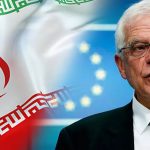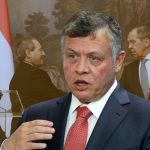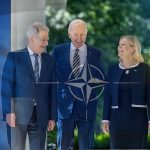NATO’s limited capacity not matched by its power

NATO, which is preparing to have a summit and has ambitions to spread its tentacles into the Asia-Pacific area, is continuously on the lookout for fictitious foes and justifies its existence by stoking conflict. Contradictions and fractures within NATO have gotten more attention lately under its aggressive narrative. The NATO game plan is not being followed in the Russia-Ukraine war. This collection of articles will offer some hints on NATO’s situation. The fourth piece is this one.
NATO is unable to prevent Russia from achieving the objectives of its military campaign in Ukraine despite all of its involvement in the fight. Because of this, Moscow has the ability to modify the level of military activity on the ground in accordance with its own planning and strategic considerations.
The US and its allies will soon be forced to choose between many options for acknowledging Russia’s valid security concerns in Eastern Europe. The easy answer to this conundrum is that NATO, which is controlled by the US, has long since overextended its real capabilities, which are insufficient to match its might.
NATO partners have recently provided the Ukrainian government enormous sums of money and levied the most severe economic sanctions ever employed in world affairs against Russia. The quantity of weapons delivered to Kiev is sufficient to supply the army of a small European or Asian nation.
Related Posts
Numerous thousands of mercenaries from NATO nations are also present in Ukraine; they are all skilled combatants. Some European NATO partners acknowledge that they have already used up all of their available supplies of military hardware. Kiev will require a huge production effort that could take months or possibly years to deliver new supplies.
One even has the sensation that the conflict in Ukraine is turning into for NATO what the conflict in Afghanistan (1979–89) turned into for the Soviet Union—a massive waste of resources in pursuit of an aim that is both illogical and contrary to the interests of the general populace.
The average person in Western Europe and the US is perfectly aware that Russia does not pose a threat to their home country or vital interests. And in the fall, we can anticipate that citizens in NATO nations will start to question why they should have to go through more economic hardships.
Therefore, NATO’s failure extends beyond the battlefield; it appears that the US post-Cold War strategy as a whole is headed to failure. The US will also need to align its own view of the world order with that of other foreign players.
Following the conclusion of the Cold War, NATO’s expansion seemed like a simple and entertaining game. Due to the difficult economic and societal transformations it underwent in the 1990s, Russia was more open to working with the West. The US’s overconfidence and ambition to take as much land as possible following the dissolution of the Soviet Union led to the aggressive NATO expansion.
The West has attempted to maximize its advantages rather than take advantage of the chance for the international community to work together to achieve an equitable world order. As it is now, at the expense of both international stability and its own reputation as a provider of security.
Many observers believed that NATO’s expansion had not taken into account the strategic ramifications for the bloc itself even by the early 1990s. Many responsible individuals in the US and Europe raised concerns about the wisdom of such a choice, stating that it would not only enrage Russia but also jeopardize the US’s credibility if Moscow were to oppose NATO on the ground.
However, the succeeding US governments have not heeded these warnings. In essence, the only scenario was dependent on the US’s continued control of the world and the incapacity of the other countries to challenge NATO militarily. It was successful for a number of decades; all NATO military operations following the end of the Cold War have targeted weaker, more isolated nations like the former Yugoslavia (1999), Afghanistan (2001), and Libya (2011).
But current events have shown that it was unrealistic from the start. Despite the fact that NATO will now enhance its military presence in Eastern Europe, it is still anticipated that it won’t be sufficient to pose a conventional threat to Russia. The peace settlement in Ukraine is already being demanded by European NATO nations including France, Germany, and Italy. They lack the resources and motivation to intensify their involvement in the continuing struggle.
So, by carelessly putting goals before of logical reasoning, the US puts itself in a position to further tarnish its reputation as the head of the Western world. This is not to discuss the internal US issues, which range from the significant COVID effects to rising consumer pricing and racial issues.













